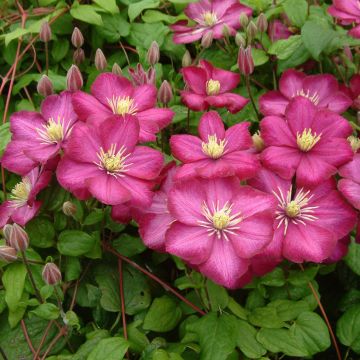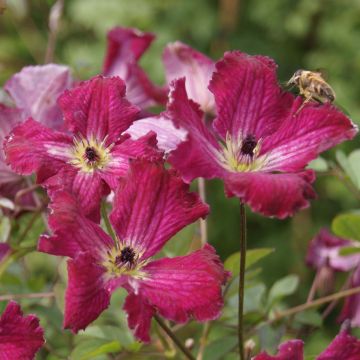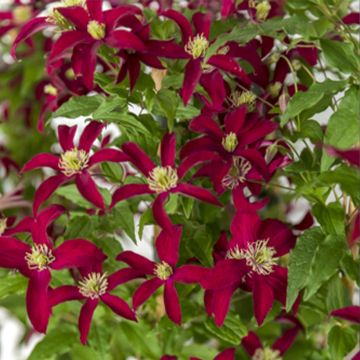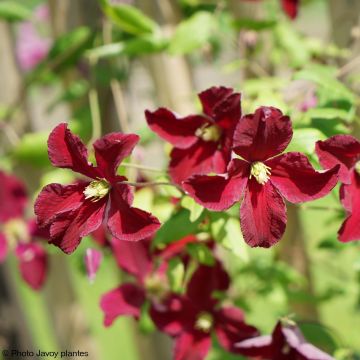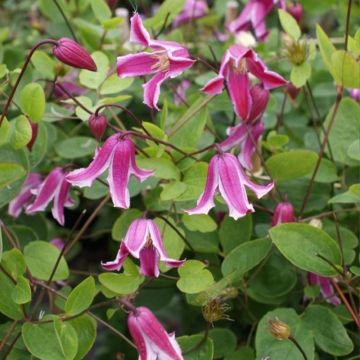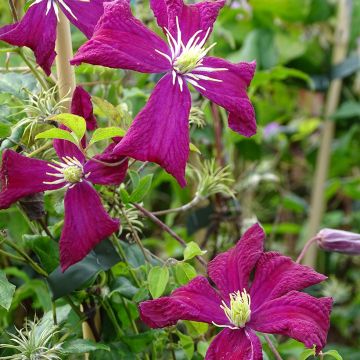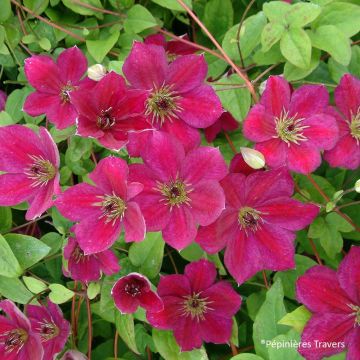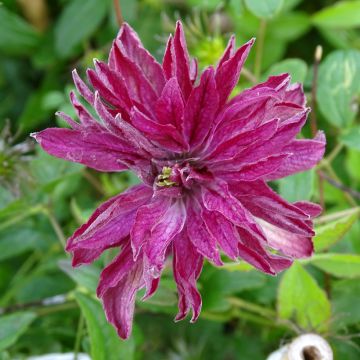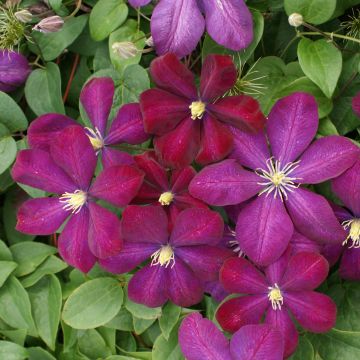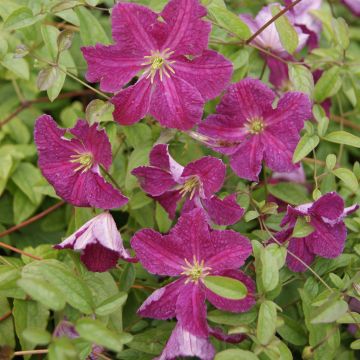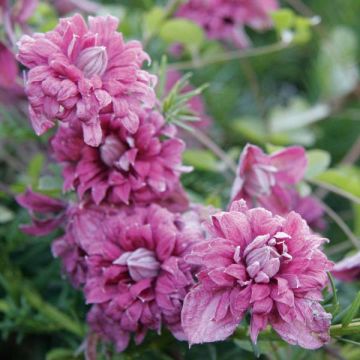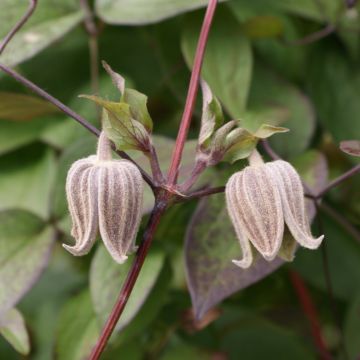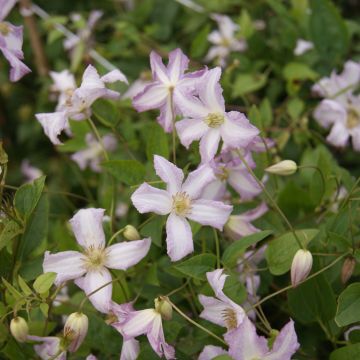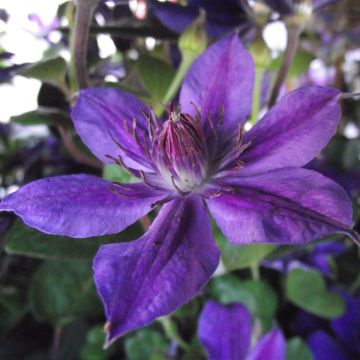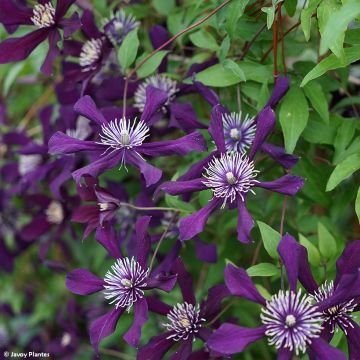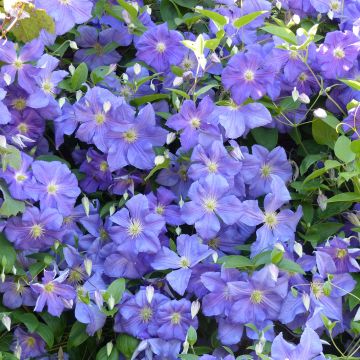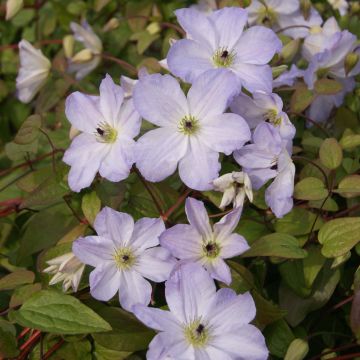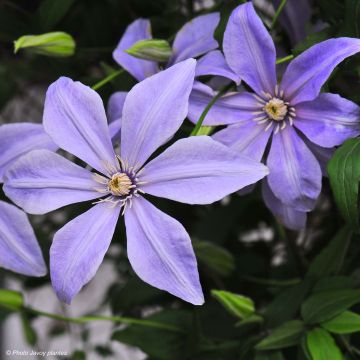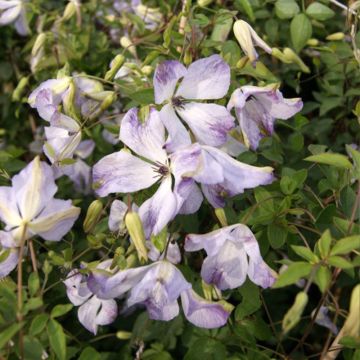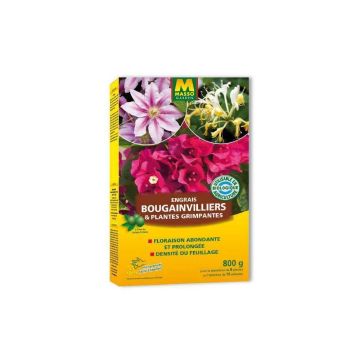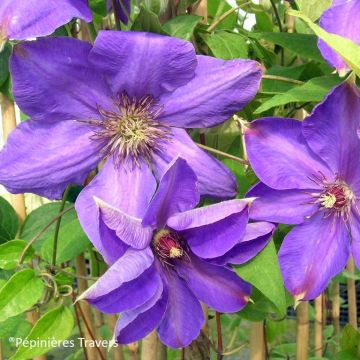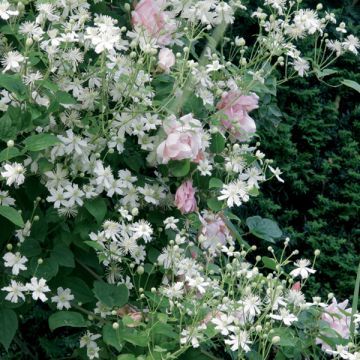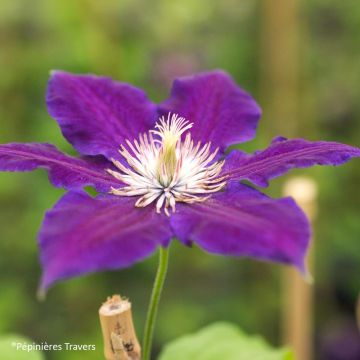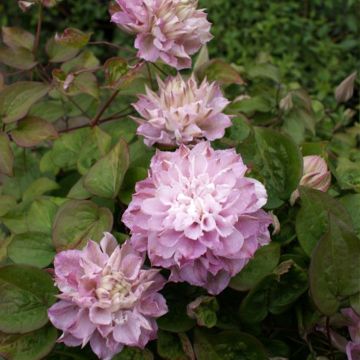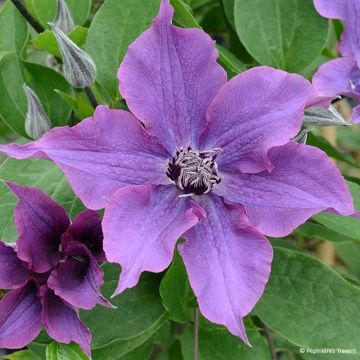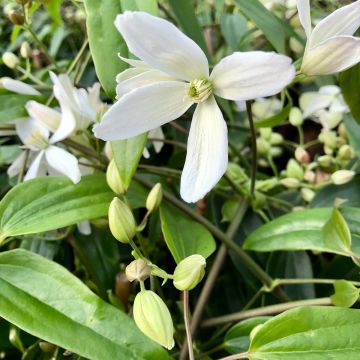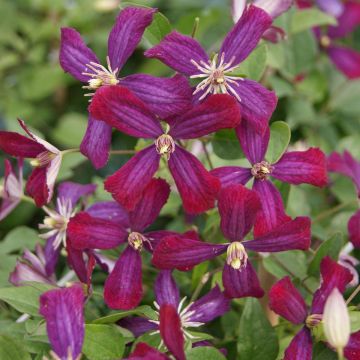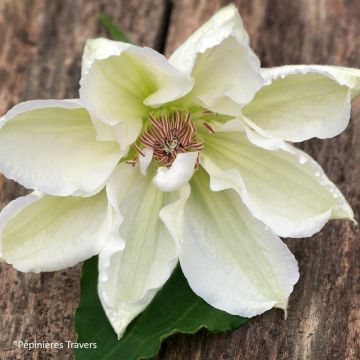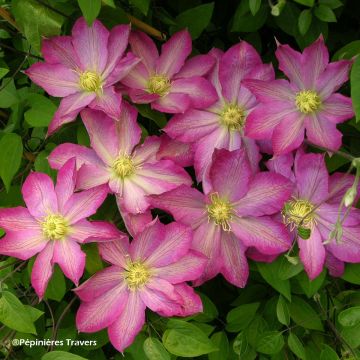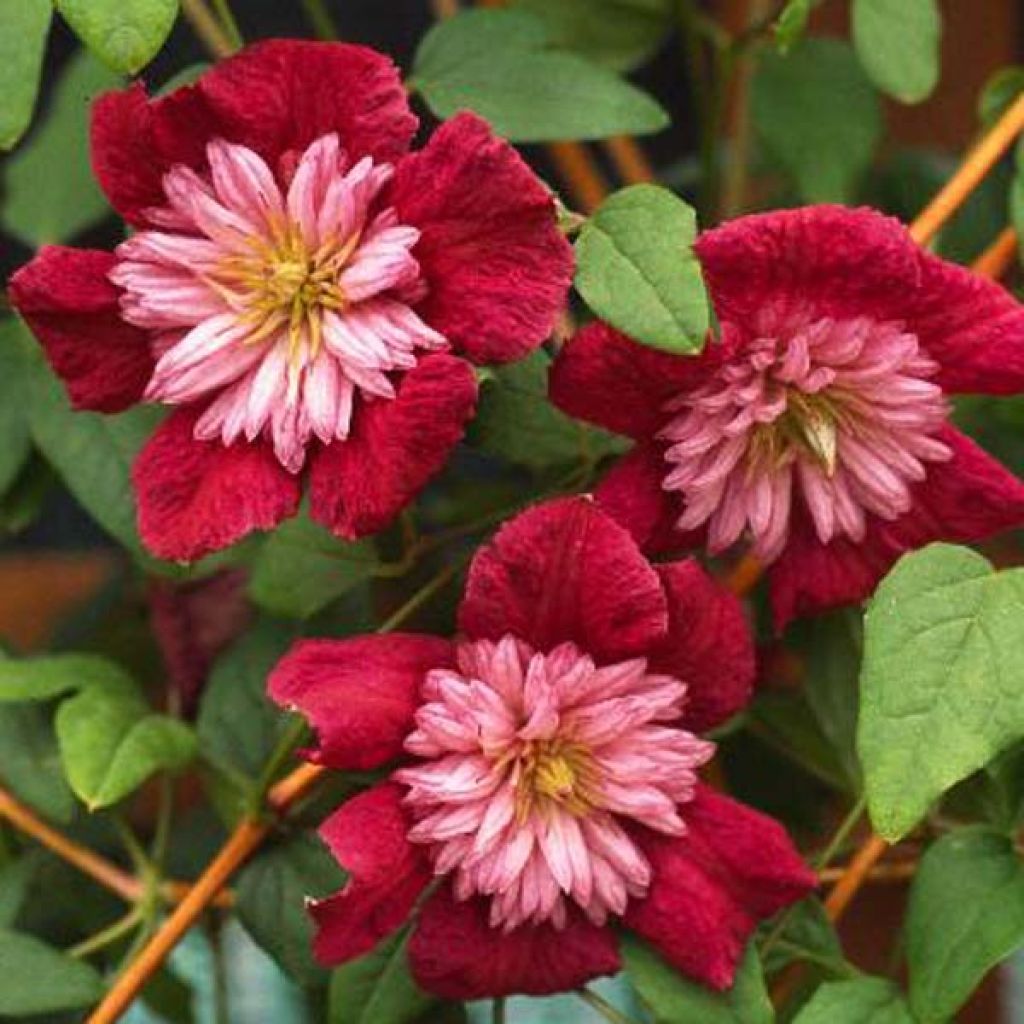

Clematis viticella Avant Garde - Italian Leather Flower


Clematis viticella Avant Garde - Italian Leather Flower
Clematis viticella Avant Garde - Italian Leather Flower
Clematis viticella Avant Garde evipo033
Italian Leather Flower, Purple Clematis, Virgin's Bower
The packaging of the pot was perfect, received on time. However, since I received it at the end of November, even though I planted it right away, I don't know yet if it is doing well (there is no reason why it wouldn't as I have already bought one in the spring and it is superb). To be continued...
Agnès, 05/01/2021
Why not try an alternative variety in stock?
View all →This plant carries a 6 months recovery warranty
More information
We guarantee the quality of our plants for a full growing cycle, and will replace at our expense any plant that fails to recover under normal climatic and planting conditions.
From €5.90 for pickup delivery and €6.90 for home delivery
Express home delivery from €8.90.
Does this plant fit my garden?
Set up your Plantfit profile →
Description
The Clematis 'Avant Garde' (Evipo033) is derived from the Clematis viticella, the renowned Italian clematis known for its ease of cultivation in all regions. It bears small flowers in summer, but their number and vibrant color truly catch the eye. Like certain dahlias, but with much delicacy, their flat corolla, of a deep grenadine red, is adorned with a pale pink pompom center. This vigorous little vine possesses all the charm and robustness of its ancestor; let it express itself in a free hedge, climb trees and conifers, or dress a trellis along a wall.
The genus Clematis belongs to the family of ranunculaceae. 'Avant Garde', obtained in England in 1996, is a mutation of the clematis 'Kermesina', often assimilated to the Clematis viticella 'Rubra'. These varieties are notably derived from Clematis viticella, native to Southern Europe. It belongs to clematis that flower in summer on year-old shoots. It is a semi-woody and climbing perennial plant, vigorous, which will reach at least 3m (10ft) in height, with a spread of 1.50m² and rapid growth.
This clematis bears flowers measuring 4 to 6 cm (2in) in diameter, from the month of June until September, mainly in the upper half of the vegetation. The bisexual flowers are solitary, more or less upright or slightly pendulous. They bloom on stems reaching a minimum length. They have 4 to 6 wide tepals, slightly curled at the edges, of a dark red-pink-purple colour. In the center of this corolla, there is a very double pompom composed of tiny pink to almost white petals, which are sterile or aborted stamens that do not produce pollen and are called staminodes. The center of the flower is occupied by a small bouquet of true stamens with yellow anthers. The flowering is followed by decorative feathery fruits of a grayish silver colour. The leaves are simple, divided into small ovate to lanceolate leaflets, of a fairly light green with irregularly serrated edges. This clematis clings to the support or host plant through petioles transformed into tendrils.
Plant your clematis alongside your climbing roses or vines to extend the flowering of your walls and pergolas until the end of summer. It is a genus rich in diversity, with varieties available in all colours, shapes, and sizes. Take advantage of the ease of cultivation of varieties derived from C.viticella, generally resistant to wilting and very water-efficient, to give your garden a romantic and bohemian touch. 'Avant Garde' establishes easily in the garden, in sunny exposure (or partial shade in hot climates) and in ordinary soil, even in dry and hot regions. It can be allowed to climb a shrub with a different flowering time, such as a lilac, mock orange, or Japanese quince. It discreetly winds itself around simple shrubs like Photinia Red Robin, Elaeagnus ebbingei, or even the canes of bamboo, transforming them into colourful clouds in summer. This variety also grows very well in a large container on a sunny terrace or balcony.
Report an error about the product description
Plant habit
Flowering
Foliage
Botanical data
Clematis
viticella
Avant Garde evipo033
Ranunculaceae
Italian Leather Flower, Purple Clematis, Virgin's Bower
Cultivar or hybrid
Other Clematis Viticella
Planting and care
Planting period
Intended location
Care
-
, onOrder confirmed
Reply from on Promesse de fleurs
Clematis
Haven't found what you were looking for?
Hardiness is the lowest winter temperature a plant can endure without suffering serious damage or even dying. However, hardiness is affected by location (a sheltered area, such as a patio), protection (winter cover) and soil type (hardiness is improved by well-drained soil).

Photo Sharing Terms & Conditions
In order to encourage gardeners to interact and share their experiences, Promesse de fleurs offers various media enabling content to be uploaded onto its Site - in particular via the ‘Photo sharing’ module.
The User agrees to refrain from:
- Posting any content that is illegal, prejudicial, insulting, racist, inciteful to hatred, revisionist, contrary to public decency, that infringes on privacy or on the privacy rights of third parties, in particular the publicity rights of persons and goods, intellectual property rights, or the right to privacy.
- Submitting content on behalf of a third party;
- Impersonate the identity of a third party and/or publish any personal information about a third party;
In general, the User undertakes to refrain from any unethical behaviour.
All Content (in particular text, comments, files, images, photos, videos, creative works, etc.), which may be subject to property or intellectual property rights, image or other private rights, shall remain the property of the User, subject to the limited rights granted by the terms of the licence granted by Promesse de fleurs as stated below. Users are at liberty to publish or not to publish such Content on the Site, notably via the ‘Photo Sharing’ facility, and accept that this Content shall be made public and freely accessible, notably on the Internet.
Users further acknowledge, undertake to have ,and guarantee that they hold all necessary rights and permissions to publish such material on the Site, in particular with regard to the legislation in force pertaining to any privacy, property, intellectual property, image, or contractual rights, or rights of any other nature. By publishing such Content on the Site, Users acknowledge accepting full liability as publishers of the Content within the meaning of the law, and grant Promesse de fleurs, free of charge, an inclusive, worldwide licence for the said Content for the entire duration of its publication, including all reproduction, representation, up/downloading, displaying, performing, transmission, and storage rights.
Users also grant permission for their name to be linked to the Content and accept that this link may not always be made available.
By engaging in posting material, Users consent to their Content becoming automatically accessible on the Internet, in particular on other sites and/or blogs and/or web pages of the Promesse de fleurs site, including in particular social pages and the Promesse de fleurs catalogue.
Users may secure the removal of entrusted content free of charge by issuing a simple request via our contact form.
The flowering period indicated on our website applies to countries and regions located in USDA zone 8 (France, the United Kingdom, Ireland, the Netherlands, etc.)
It will vary according to where you live:
- In zones 9 to 10 (Italy, Spain, Greece, etc.), flowering will occur about 2 to 4 weeks earlier.
- In zones 6 to 7 (Germany, Poland, Slovenia, and lower mountainous regions), flowering will be delayed by 2 to 3 weeks.
- In zone 5 (Central Europe, Scandinavia), blooming will be delayed by 3 to 5 weeks.
In temperate climates, pruning of spring-flowering shrubs (forsythia, spireas, etc.) should be done just after flowering.
Pruning of summer-flowering shrubs (Indian Lilac, Perovskia, etc.) can be done in winter or spring.
In cold regions as well as with frost-sensitive plants, avoid pruning too early when severe frosts may still occur.
The planting period indicated on our website applies to countries and regions located in USDA zone 8 (France, United Kingdom, Ireland, Netherlands).
It will vary according to where you live:
- In Mediterranean zones (Marseille, Madrid, Milan, etc.), autumn and winter are the best planting periods.
- In continental zones (Strasbourg, Munich, Vienna, etc.), delay planting by 2 to 3 weeks in spring and bring it forward by 2 to 4 weeks in autumn.
- In mountainous regions (the Alps, Pyrenees, Carpathians, etc.), it is best to plant in late spring (May-June) or late summer (August-September).
The harvesting period indicated on our website applies to countries and regions in USDA zone 8 (France, England, Ireland, the Netherlands).
In colder areas (Scandinavia, Poland, Austria...) fruit and vegetable harvests are likely to be delayed by 3-4 weeks.
In warmer areas (Italy, Spain, Greece, etc.), harvesting will probably take place earlier, depending on weather conditions.
The sowing periods indicated on our website apply to countries and regions within USDA Zone 8 (France, UK, Ireland, Netherlands).
In colder areas (Scandinavia, Poland, Austria...), delay any outdoor sowing by 3-4 weeks, or sow under glass.
In warmer climes (Italy, Spain, Greece, etc.), bring outdoor sowing forward by a few weeks.

































